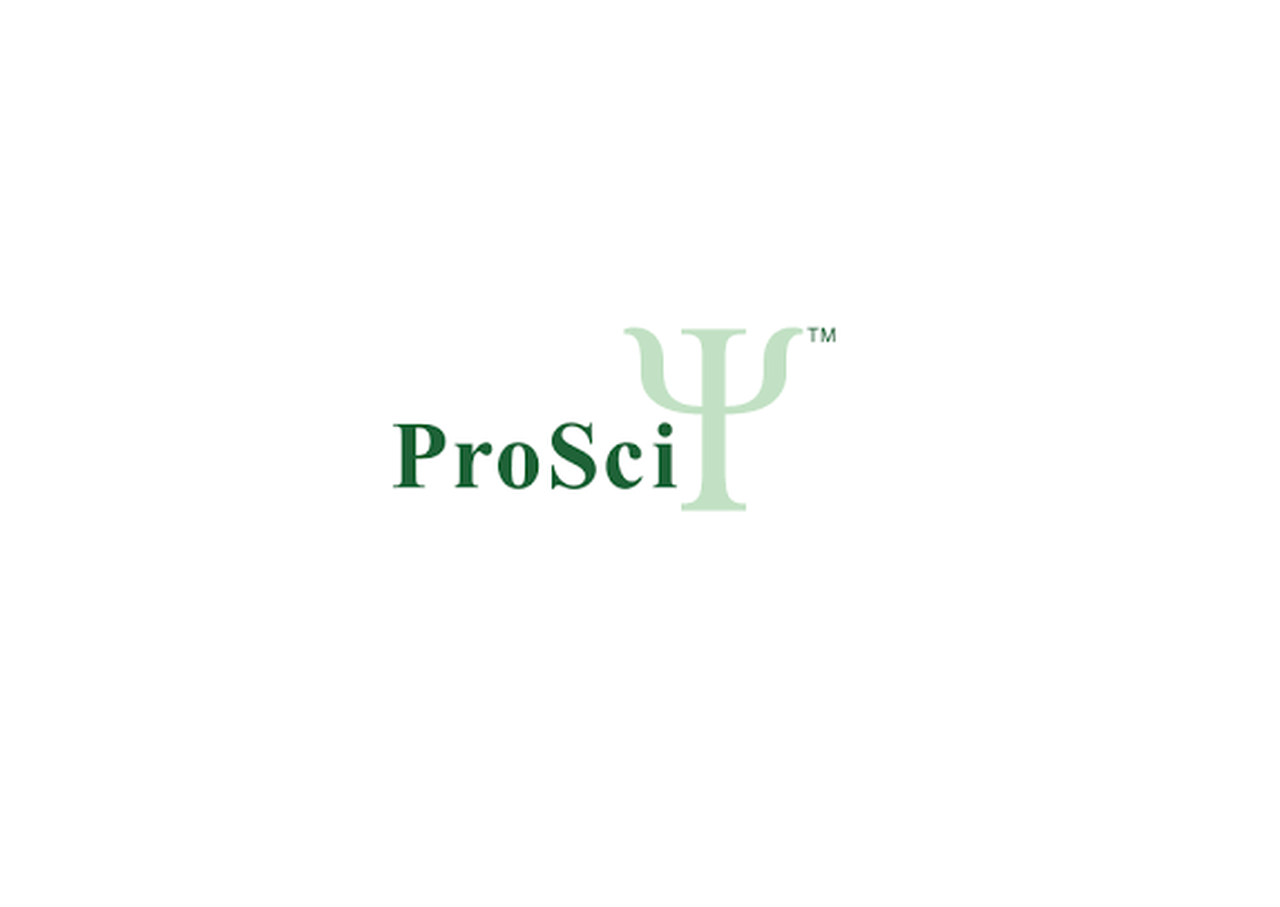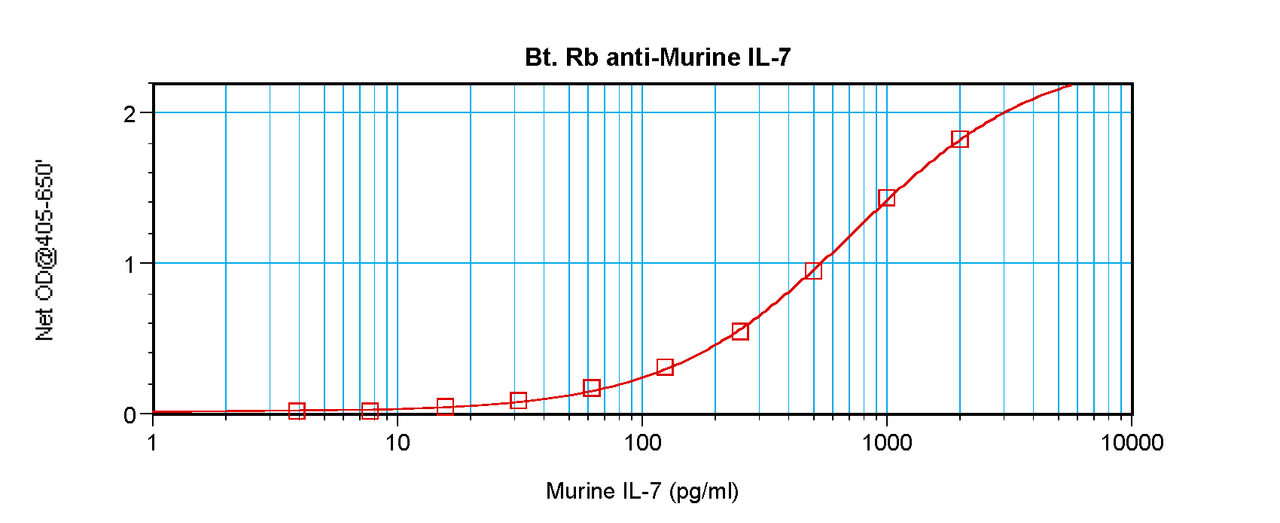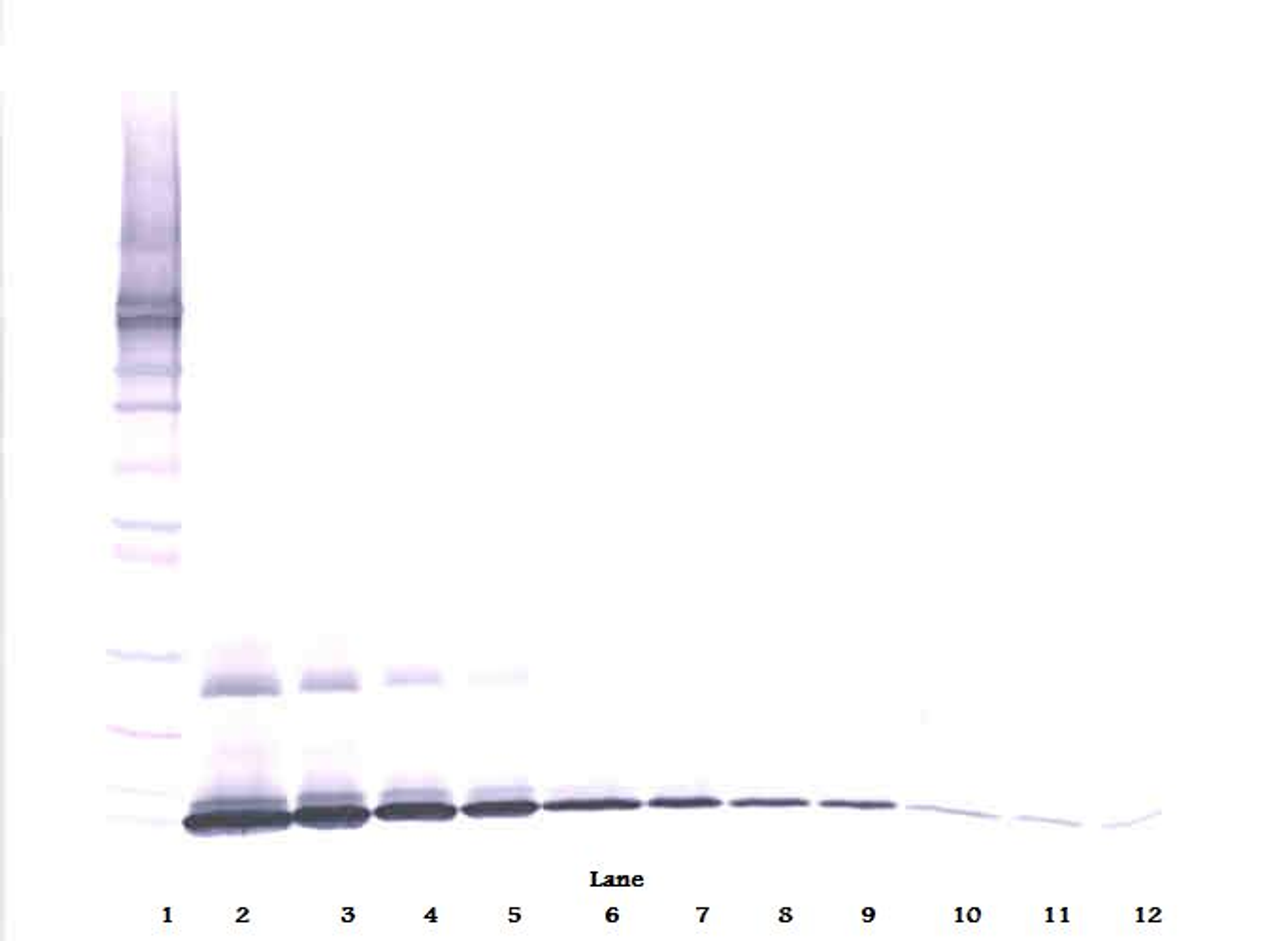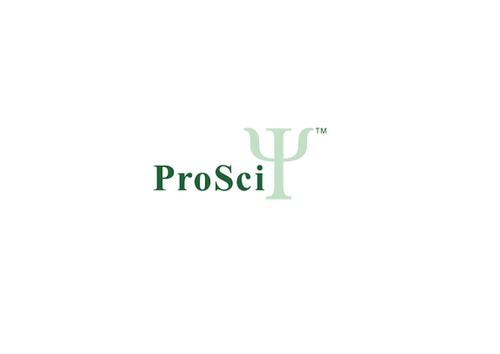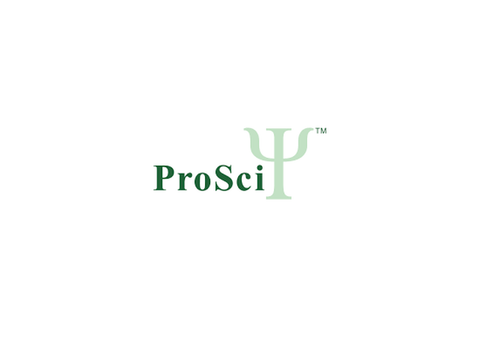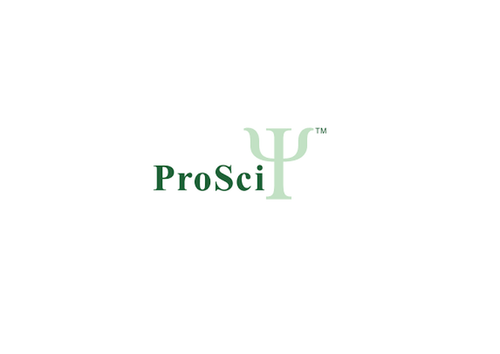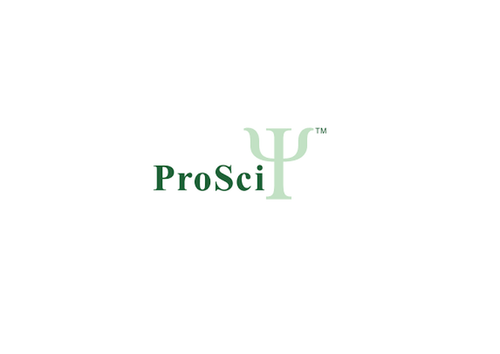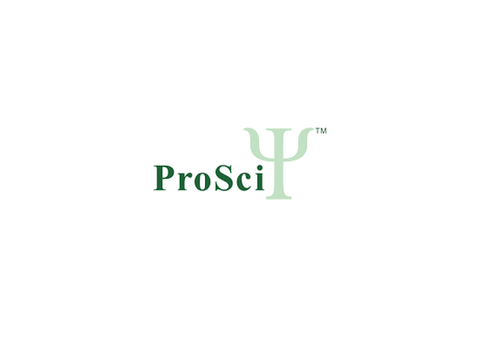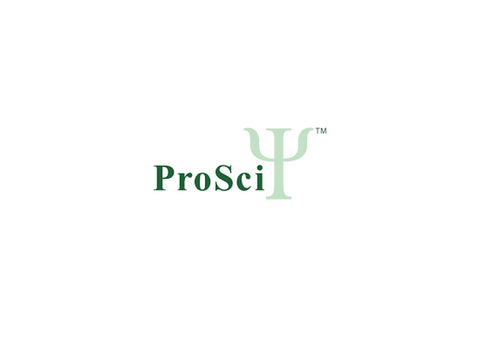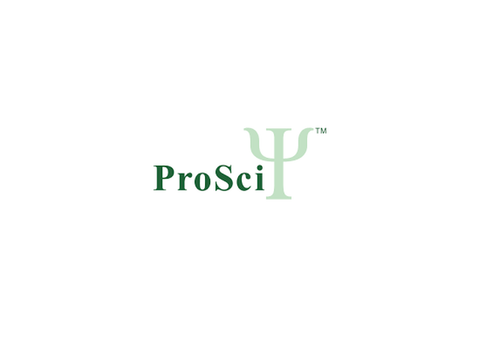Product Description
IL-7 Antibody (biotin) | XP-5198Bt | ProSci
Host: Rabbit
Reactivity: Mouse
Homology: N/A
Immunogen: Produced from sera of rabbits pre-immunized with highly pure (>98%) recombinant mIL-7 (murine IL-7) .
Research Area: Immunology, Chemokines & Cytokines, Antibody Pairs
Tested Application: E, WB
Application: ELISA:
Sandwich:
To detect mIL-7 by sandwich ELISA (using 100 μL/well antibody solution) a concentration of 0.25 - 1.0 μg/mL of this antibody is required. This biotinylated polyclonal antibody, in conjunction with our Polyclonal Anti-Murine IL-7 (XP-5198) as a capture antibody, allows the detection of at least 0.2 - 0.4 ng/well of recombinant mIL-7.
Western Blot:
To detect mIL-7 by Western Blot analysis this antibody can be used at a concentration of 0.1 - 0.2 μg/mL. Used in conjunction with compatible secondary reagents the detection limit for recombinant mIL-7 is 1.5 - 3.0 ng/lane, under either reducing or non-reducing conditions.
Specificiy: N/A
Positive Control 1: N/A
Positive Control 2: N/A
Positive Control 3: N/A
Positive Control 4: N/A
Positive Control 5: N/A
Positive Control 6: N/A
Molecular Weight: N/A
Validation: N/A
Isoform: N/A
Purification: Anti-mIL-7 specific antibody was purified by affinity chromatography and then biotinylated.
Clonality: Polyclonal
Clone: N/A
Isotype: N/A
Conjugate: Biotin
Physical State: Lyophilized
Buffer: N/A
Concentration: N/A
Storage Condition: IL-7 antibody is stable for at least 2 years from date of receipt at -20˚C. The reconstituted antibody is stable for at least two weeks at 2-8˚C. Frozen aliquots are stable for at least 6 months when stored at -20˚C. Avoid repeated freeze-thaw cycles.
Alternate Name: Il-7, hlb368, A630026I06Rik, Il-7, Interleukin-7IL-7
User Note: Centrifuge vial prior to opening.
BACKGROUND: Iterleukin 7 is a lymphoid cell growth factor that affects pre-B, pro-B, and early T cells. IL-7 was previously known as pre-B cell growth factor and lymphopoietin 1. IL-7 supports the growth of early B cells from long-term lymphoid bone marrow cultures. It is mitogenic to thymocytes and enhances the response of cells to other stimuli such as polyhydroxyalkanoate (PHA) and concanavalin A (ConA) . IL-7 stimulates the proliferation of CD4+/CD8+ cells. The proliferative response of thymocytes to IL-7 is not affected by antibodies to the T cell growth factors such as IL-2, IL-4 and IL-6, suggesting that IL-7 is capable of stimulating T cell proliferation through a pathway independent of the known T cell growth factors. Mature T cells respond to IL-7 and Con A, but not to IL-7 alone. In myeloid lineage cells, IL-7 upregulates the production of pro-inflammatory cytokines and stimulates the tumoricidal activity of monocytes/macrophages. IL-7 is expressed by adherent stromal cells from various tissues.
 Euro
Euro
 USD
USD
 British Pound
British Pound
 NULL
NULL

